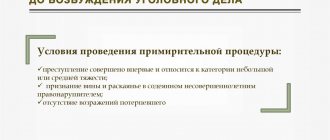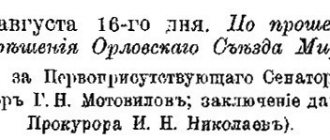Any criminal process is based on proof and clarification of certain circumstances. When investigating a criminal case, it is important to collect as much evidence as possible to confirm the guilt of the person.
All evidence must comply with certain rules: be reliable, correctly formatted, and the quantity must be sufficient to investigate the case. An important factor when considering a case in court is the assessment of evidence in criminal proceedings.
Types and difference
The Criminal Code of the Russian Federation provides for various types of evidence. If we take into account the general classification of the evidence base, it can be direct and indirect. Direct evidence confirms and indicates the guilt of the criminal, while indirect evidence does not directly indicate the person’s involvement in the crime, but can help to draw a causal connection between the criminal and the crime, to identify goals and motives.
All types of evidence are strictly enshrined in criminal procedural legislation. When investigating a case, the investigator or inquiry officer must focus only on such evidence as is listed in the Criminal Procedure Code.
Free legal consultation
+8 800 100-61-94
Attention! All information received and collected within the framework of a criminal case must be properly recorded.
Testimony of the suspect or accused
The testimony of the guilty person represents information obtained during the interrogation of the criminal. The interrogation is completed on a special form. The investigator or interrogating officer has the right to find out from the suspect any information related to the crime. The guilty person may refuse to testify.
In this case, the interrogation protocol is still drawn up. It makes a note that the suspect or accused citizen does not want to give evidence and refuses it.
The interrogation of a guilty person should only take place with the participation of a defense lawyer! If the offender has not reached the age of sixteen, then a psychologist or teacher must participate in his interrogation.
Testimony of the victim and witness
Witness testimony is information obtained as part of an investigation from a person recognized as a witness. In a criminal case there may be one or more victims who also need to be questioned under all the circumstances.
The victim cannot refuse to testify. Before interrogating a person as a victim, the investigator or interrogating officer must make a decision recognizing the person as a victim. Such a decision is made on the day the criminal case is initiated.
Conclusion of a specialist or expert
Testimony of a specialist and expert - written information that supplements the conclusions and allows you to obtain more information about the examination. The expert's conclusion involves written information and conclusions made after the examination.
In his conclusion, the expert answers the questions posed by the investigator or interrogator. A specialist’s conclusion involves a written judgment, an explanation of certain information known to a specialist in a certain profession.
Evidence
Material evidence can be things and objects of the material world. Such items can be the criminal’s weapon, stolen money and jewelry, things found during the crime, as well as other items that are relevant to the criminal case.
Important! Items can be recognized as material evidence only after a corresponding decision has been issued. Physical evidence must be properly examined and described in the investigative report.
Protocols of judicial and investigative actions
Evidence in a criminal case can be protocols drawn up during inspections, seizures, examinations and other investigative actions. Records must be in proper form and correctly completed for evidence to be admissible.
Other documents
Such documents may be recorded in writing or other form. Other documents include photographs and video materials, audio recordings, as well as other documents relevant to the case. All documents are attached to the production materials and are kept on file.
Does the court have the right to assess the admissibility of evidence: using the example of clause 32 of the Plenum of the RF Armed Forces on compulsory motor liability insurance
The relatively recently adopted Resolution of the Plenum of the Supreme Court of the Russian Federation dated December 26, 2017 N 58 “On the application by courts of the legislation on compulsory insurance of civil liability of vehicle owners” (hereinafter referred to as the Plenum on OSAGO) in paragraph 3, paragraph 32 states that if the insurer does not inspection in connection with the provision by the victim of false information that the nature of the damage precludes the presentation of the damaged property for inspection at the location of the insurer, then when resolving the dispute, the opinion of an independent expert presented by the victim in support of his claims may be recognized by the court as inadmissible evidence/
At the same time, at the end of paragraph 3 of paragraph 32 of the Plenum on OSAGO there is a reference to Article 60 of the Code of Civil Procedure of the Russian Federation and paragraph 5 of paragraph 11 of Article 12 of the Federal Law of April 25, 2002 N 40-FZ (as amended on December 18, 2018) “On compulsory civil liability insurance of vehicle owners” (hereinafter referred to as the MTPL Law). Thus, we can conclude that the clause of the Plenum on compulsory motor liability insurance is based on the above legislative provisions.
However, according to paragraph 5, paragraph 11, article 12 of the Law on Compulsory Motor Liability Insurance, the results of an independent technical examination of damaged property independently organized by the victim are not accepted to determine the amount of insurance compensation if the victim did not submit the damaged property for inspection (examination) on the dates agreed with the insurer in accordance with paragraph. para. 1.2 clause 11 article 12 of the Law on Compulsory Motor Liability Insurance. Consequently, based on the literal interpretation of paragraph 5, clause 11, article 12, the results of an independently conducted examination, obtained in circumvention of the procedure established by the Compulsory Motor Liability Insurance Law, clearly unacceptable evidence from the point of view of the Compulsory Motor Liability Insurance Law.
Accordingly, a conflict arises between paragraph 5 of paragraph 11 of Article 12 of the Law on Compulsory Motor Liability Insurance and paragraph 32 of the Plenum on Compulsory Motor Liability Insurance: the situation is aggravated by the fact that in modern Russian realities the court is guided by both provisions equally when making a decision. We will try to resolve this conflict.
1. The concept of admissibility under Russian law.
The decision is justified when the facts relevant to the case are confirmed by evidence examined by the court that meets the requirements of the law on their relevance and admissibility (Articles 50, 59-61, Code of Civil Procedure of the Russian Federation).
The scientist-proceduralist M. Fokina in her work “The Mechanism of Civil Procedural Evidence” notes that in the pre-revolutionary and later Soviet theory of judicial evidence it was recognized that it was necessary to limit the free disposal of evidence by the parties in the interests of the strength of the forms of civil circulation, obtaining correct knowledge about the actual circumstances cases, guarantees against abuse by an unscrupulous party. (Isachenko V.L. Civil process. Practical commentary on the second book of the Charter of Civil Proceedings. Minsk, 1891. T.2. P.52-57; Vyshinsky A.Ya. Theory of judicial evidence in Soviet law. M., 1946. P .188).
For the first time in the history of domestic civil proceedings, the term “admissibility of evidence,” which had previously been used only in scientific literature and judicial practice, was legislated in the Code of Civil Procedure of the RSFSR of 1964. The code itself also formulated the rule of admissibility. Thus, according to Article 54 of the Civil Procedure Code of the Russian Federation, “the circumstances of the case, which by law must be confirmed by certain means of proof, cannot be confirmed by any other means of proof.” In a similar way, this rule is presented in Article 60 of the Code of Civil Procedure of the Russian Federation.
Based on the literal interpretation of the law, admissibility is primarily of a procedural nature . Thus, scientist O.V. Ivanov identifies the following procedural criteria that can be used in civil and arbitration proceedings when determining the admissibility of evidence, defined by O.V. Ivanov; this is 1) the type of source of factual data; b) the method of obtaining factual data from each such source of information within the framework of the trial (1. Fokina - Mechanism of civil procedural evidence).
Part 2 of Article 55 of the Code of Civil Procedure of the Russian Federation provides an exhaustive list of sources of evidence: citizens vested in the established order with the procedural position of a party, a third party, a witness, an expert; documents, material objects (things). The presentation of evidence is strictly regulated by the procedure; the specific content of the actions to present evidence depends on the means of proof. Violation of the order in which evidence is presented may result in it being declared inadmissible. For example, an expert opinion presented at the initiative of the parties cannot be recognized as admissible evidence, since the current procedural evidence provides for the possibility of conducting only a forensic examination. The court does not have the right to accept as an expert’s opinion the results of an examination that was not ordered by the court and was carried out outside the trial. The resulting conclusion is not an expert’s conclusion in the sense of Part 2 of Article 55 of the Code of Civil Procedure of the Russian Federation, since the study was conducted outside the framework of the process, without complying with the requirements of the civil procedural form.
However, unlike the criminal process, in civil procedural law the doctrine of the admissibility of evidence “is primarily associated with an orientation towards substantive law with the study of the impact of substantive and, above all, civil law, on procedural law and its norms” (2. Bonner - Establishing the circumstances of civil cases ).
In Soviet literature, starting from the 1960s, the judgment was mainly expressed that admissibility in the substantive sense can only be associated with transactions, violation of the simple written form of which entails a prohibition to refer to witness testimony in support of the transaction. (3. Reznichenko I.M. On the principle of objective truth in Soviet civil proceedings). Gradually, this point of view began to change; the overwhelming majority of modern authors believe that the rules of admissibility are established in many other norms of various branches of substantive law (4. in particular, M.K. Treushnikov, A.T. Bonner).
The admissibility of evidence in the material sense is a limitation associated with the establishment of unknown facts of legal significance using evidence pre-prescribed by the rules of law, rather than any type of forensic evidence provided for by law.
Although the rules determining the admissibility of evidence in civil proceedings are found in various branches of law, they to a certain extent regulate one type of relationship that arises in the process of carrying out evidentiary activities. They are united by a common goal: making it easier for the court to establish the factual circumstances of the case. “The meaning of the rule of admissibility, according to I.M. Reznichenko, is to encourage the parties in civil transactions to formalize their relations accordingly.”
Treushnikov M.K. believes that two types of rules on the admissibility of evidence should be distinguished. Firstly, norms with a “negative” nature of the content of the rules of evidence, which are associated primarily with the forms of transactions and exclude from the means of proof witness testimony and written evidence that does not comply with the requirements of the law on the form of the transaction. Secondly, norms with “positive” content, which speak of the need to confirm facts by a certain means of proof, which cannot be replaced by another, but additional evidence can be used to confirm or refute a fact. The rules on the admissibility of evidence, which prescribe the court to use a certain means of proof, are contained in civil procedural, civil, family, housing, and labor legislation (5. Treushnikov M. - Judicial evidence).
The division of admissibility into “negative” and “positive” components did not find understanding among a number of authors. In their opinion, the rule of admissibility always has a “negative” (exclusive) character. Kozlov A.S. Current problems of the theory of evidence in the science of civil procedure. Irkutsk, 1980. P.50. So, A.T. Bonner, criticizing the position of M.K. Treushnikova, argues that the “positive” regulations contained in the laws are more likely to relate to the area of sufficiency of evidence, rather than to the scope of the rule on the admissibility of evidence with “positive” content. (6. Bonner A.T. - Establishing the circumstances of civil cases).
The author of the article finds no objection to A.S. Kozlov. and Bonner A.T. regarding such differentiation, the rules of admissibility are justified. So, firstly, there are many examples of “positive” admissibility in the legislation. In accordance with Article 105 of the Air Code of the Russian Federation, a contract for air transportation of cargo is certified by a ticket, baggage cargo receipt or postal waybill, respectively. The forms of the ticket, baggage cargo receipt and postal waybill are established by a specially authorized body in the field of civil aviation. Article 134 of the Transport Charter of Railways requires that the circumstances that are the basis for the liability of the railway, shippers, consignees..., as well as passengers when transporting passengers, cargo, luggage by railways are certified by general commercial acts and other acts. Consequently, the remaining evidence can be accepted by the court, but first of all the legislator pays attention to certain evidence; “says” that they primarily indicate the existence of legal relations.
Secondly, we cannot agree with the scientist A.T. Bonner. regarding the fact that “these rules rather relate to the sufficiency of evidence.” Whether there is enough evidence in the case materials, the judge decides based on his own opinion, that is, according to his inner conviction; As a general rule, laws do not establish a list of evidence that would be considered sufficient for a person to exercise his right or protect his interest. The issue of sufficiency of evidence is a matter of judicial assessment based on the personal conviction of the judge. “When talking about the sufficiency of evidence, it is necessary to emphasize a very important circumstance. The sufficiency of evidence cannot be ensured by mechanical summation of evidence that is relevant in content, acceptable in form and reliable. The court is faced with the task of selecting not just any relevant, admissible and reliable evidence, but first of all those that have the greatest value” (7. Treushnikov M.K. Civil procedure. Textbook).
Applying the considered theoretical reasoning to the conflict in question, it is logical to conclude that paragraph 5 of clause 11 of article 12 of the Law on Compulsory Motor Liability Insurance represents an example of admissibility with “negative” content: the rule establishes a ban on the use of certain evidence in place of another.
2. Establishing the truth in a civil case (establishing the actual circumstances of the case ) vs. The principle of admissibility in the substantive sense.
It seems that the decision that was proposed in paragraph 32 of the Plenum on OSAGO was motivated by considerations of establishing the truth in the case. This means that even if formally the evidence was obtained in violation of the law, it can still be accepted for consideration by the court to establish the actual circumstances of the case.
Here we see how the principle of admissibility of evidence and the beginning of the civil process as establishing the truth in the case interact.
Truth in justice and in the theory of evidence is understood as the correspondence of judges’ knowledge with the facts of reality, i.e. correct knowledge about fragments of reality that have legal significance. The purpose of proof is to establish that the litigant’s statement is true, wrote E.V. Vaskovsky. Proof in the procedural sense is the establishment of the truth of the parties' statements before the competent court in the form prescribed by law (Vaskovsky - Textbook of Civil Procedure). “Judicial evidence can lead to correct knowledge when it is carried out in full compliance with the requirements of civil and arbitration procedural law, the norms of which take into account the objective laws of logic, the laws of the cognitive process and ensure the accuracy of the conclusions reached by the court” (8. Treushnikov - “Judicial Evidence”) "
In connection with the consideration of the principle of admissibility and the purpose of proof, a logically logical question arises: is it not a deviation from the goal of achieving the truth if the procedural law itself and the sanctions of civil law rules exclude individual evidence from the process? In the legal literature, opposing points of view on this issue are expressed.
Some authors (K.S. Yudelson, P.V. Loginov, N.D. Lordkipanidze, A.G. Kalpin) expressed the opinion that the admissibility of evidence fully complies with the requirement of finding the truth in civil cases. For example, A.G. Kalpin wrote that “it is impossible to recognize as correct the opinion that in Soviet civil proceedings there is a conflict between the principle of objective truth and the rule of admissibility of evidence.
Other authors (M.A. Gurvich, S.V. Kurylev, M.G. Avdyukov, A.T. Bonner) believed that in some cases the admissibility of evidence makes it difficult to establish the truth in the case. So, S.V. Kurylev wrote: “Legislative prohibitions can be used in certain cases when proving by testimony,” wrote S.V. Kurylev, “are exceptions to the principle of objective truth, and therefore complicate the task of the court when considering relevant cases.”
“An essential question in the application of the principle of objective truth,” noted Prof. M.A. Gurvich, - arises in connection with the rule of admissibility of evidence, by virtue of which some legal facts, according to the law, can, in the event of a dispute, be proven only by certain types of evidence. When applying this rule, it can easily turn out that this or that fact actually happened, but due to the absence of evidence of a certain type in a particular case... this fact must be rejected by the court in the event of a dispute. This creates a contradiction between reality and its judicial confirmation.”
At the same time, M.A. Gurvich believed that the threat of denial of judicial protection of legal actions that were not properly formalized is achieved in such a way that they are formalized on a massive scale, in which the refusal to protect rights due to lack of proof by admissible evidence becomes a value that cannot be taken into account. The principle of objective truth triumphs, and not deviations from it that are exceptional in significance and insignificant in number. (9. Treushnikov - “Judicial Evidence”).
In his work “Judicial Evidence” M.K. Treushnikov proposed to differentiate the answer to this question depending on the “positive” and “negative” content of the rule of admissibility. “Rules of admissibility with negative “negative” content, including a prohibition to refer to testimony in the event of a dispute and which are sanctions for violating the form of transactions in their legal purpose, also do not contradict the goals of judicial purpose. These rules (sanctions) are aimed at ensuring that participants in legal relations consolidate legal information in an unchanged form, steadily and with the expectation of its preservation for a long time” (10. Treushnikov - Judicial evidence).
The author of this article believes that, in general, the rule of admissibility does not contradict the purpose of evidence - establishing the actual circumstances of the case. However, special care is required from the legislator in this area, because the exclusion of certain evidence may lead to the impossibility of protecting violated rights. Such an exception must be justified, including from the point of view of sustainability and stability of relations.
3. Conflict resolution.
3.1. The content of the assessment of each individual evidence includes the resolution of questions: a) about the source of evidence (means of proof), b) about the relevance and admissibility of evidence; c) about the reliability of the evidence. It seems to the author of this article that paragraph 32 of the Plenum of the RF Supreme Court actually established the discretionary power of the court to assess the admissibility of evidence based on internal conviction. Meanwhile, the court has the right to evaluate only the reliability of the evidence : “whether to believe it or not” (hence the concept of “inner conviction”). The relevance and admissibility of evidence are determined on the basis of mandatory rules established in procedural and substantive law. Therefore, these categories cannot be evaluative.
3.2. Also, a “formal” argument in favor of the priority of paragraph 5 of paragraph 11 of Article 12 of the Law on Compulsory Motor Liability Insurance over paragraph 32 of the Plenum on Compulsory Motor Liability Insurance is the fact that the decisions of the Plenum of the Supreme Court are only clarifications of judicial practice (Article 126 of the Constitution of the Russian Federation). The law, of course, is much higher in terms of the hierarchy of sources of law (although, of course, clarifications have long played a huge role in the Russian legal system). In the event of a contradiction between the provision of the law and the explanation of the Plenum, the court must be guided by the former.
3.3. Returning to the question of the existence of a contradiction between the rule of admissibility and the purpose of proof, the author believes that in the case under consideration the prohibition of using the results of an independently conducted examination as evidence without providing the vehicle for inspection to the insurer is more than justified. Firstly, the MTPL Law very clearly regulates the procedure for assessing damage to a vehicle after an accident: the policyholder is obliged to provide the vehicle to the policyholder for inspection. Secondly, car insurance relationships have long been established in the market; the procedure to be performed is the same for all insurance organizations and service consumers. Moreover, policyholders are required to familiarize themselves with the insurance rules and act in strict accordance with them. Thirdly, if you look at the experience of the European insurance business, you can see that there the level of automation of actions in auto insurance is much higher than in Russia. It seems that by allowing policyholders to deviate from the federal procedure in the field of motor insurance, paragraph 32 of the Plenum on OSAGO reduces the prospects for the development of the insurance business towards automation and predictability.
Thus, based on the above arguments, paragraph 32 of the Plenum on OSAGO cannot contain the discretionary power of the court to assess the admissibility of evidence.
· Bibliography:
1. Fokina M.A. Mechanism of civil procedural evidence;
2. Kleiman A.F. Basic questions of the theory of evidence in Soviet civil proceedings;
3.Legislation. Right for business. No. 11/2008 - Some theoretical and practical problems of admissibility of evidence. V.V. Molchanov. P.13-27.
4. Legislation. Right for business. No. 1/2006 V.V. Molchanov p.61-71.
5. Treushnikov - Evidence and proof;
6. Sakhnova T.V. Expertise in civil court, 1997;
7. Treushnikov. Relevance and admissibility of evidence in civil proceedings;
8. I.V. Reshetnikova - Evidence in civil proceedings;
9. Bonner A.T. Establishing the circumstances of civil cases;
10. Reznichenko I.M. On the principle of objective truth in Soviet civil proceedings;
11. Kalpin A.G. Written evidence in judicial practice in civil cases;
12. Arsenyev V.D. Questions of the general theory of judicial evidence, 1964. M;
13. Barashkov S.A. Reliability and probability in Soviet civil proceedings. 1986;
14. Barashkov S.A. Reliability and probability and judicial proof in s.g.p. 1985;
15. Treushnikov M. Relevance and admissibility of judicial evidence in civil proceedings. 1981.
Concept of evidence assessment
Each evidence must be assessed from a legal point of view. The assessment of evidence is considered the final stage of the investigation, a mental activity during which each protocol, each material and object attached to the case is evaluated.
There are often cases when evidence collected during an investigation or inquiry was declared illegal. It is possible to prove a person’s guilt or involvement in a crime committed only with the help of information collected in full and recorded in a certain way.
6.2. Subject of proof
The subject of proof is the circumstances that must be established in the case (Article 73 of the Code of Criminal Procedure): the event of the crime (time, place, method, etc.); guilt of a person in committing a crime, form of his guilt, motives; circumstances characterizing the personality of the accused; the nature and extent of the harm caused by the crime; circumstances excluding criminality and punishability of the act; circumstances mitigating (Article 61 of the Criminal Code) and aggravating (Article 63 of the Criminal Code) punishment; circumstances that may lead to release from criminal liability and punishment (for example, reconciliation (Article 25 of the Code of Criminal Procedure)); circumstances that contributed to the commission of the crime.
What the law says
According to the current criminal procedure legislation, the assessment of evidence is the final stage of proof, which also consists of collecting information and verifying it. The concept of assessment is not given in the Code of Criminal Procedure.
According to Article 88 of the Code of Criminal Procedure of the Russian Federation, the following categories of persons are authorized to evaluate evidence and declare it inadmissible:
- court;
- prosecutor;
- investigator;
- interrogator.
Important! Any person participating in a criminal case can doubt the correctness of the evidence base. Both the defense attorney and the expert can challenge the evidence.
6.3. Subject of proof and duty of proof
Subjects of evidence are persons who collect evidence through investigative and other procedural actions: court, prosecutor, investigator, inquirer, and who have the right to participate in evidence by filing petitions for the requisition of documents and objects as evidence, their inclusion in the case, as well as production of investigative and other procedural actions aimed at obtaining evidence: suspect, accused, as well as victim, civil plaintiff, civil defendant, defense attorney, private prosecutor (Part 2, 3 of Article 86, Chapter 41 of the Code of Criminal Procedure?). The limits of proof are the necessary minimum of reliable evidence and the depth of study of the circumstances of the subject of proof, on the basis of which it is possible to make the only correct decision in the case. This rule is universal for all decisions in criminal proceedings. Proof is the process of collecting, checking and evaluating evidence (Article 85 of the Code of Criminal Procedure). The collection of evidence occurs mainly through investigative and procedural actions by the inquirer, investigator, prosecutor and court. The defender has the right to collect evidence by: obtaining objects, documents and other information; interviewing persons with their consent; requesting certificates, characteristics and other documents from authorities at various levels, as well as public associations (Article 86 of the Code of Criminal Procedure). Collection, evaluation and verification of evidence in order to establish the circumstances of the subject of proof is a formalized concept of the process of proof. It follows from the rules for assessing evidence that each evidence is subject not only to verification, but also to assessment in terms of relevance, admissibility, reliability, and all evidence collected in the case is subject to sufficiency to resolve the criminal case. The rules of admissibility are established in Art. 75, 88 of the Code of Criminal Procedure, and in case of violation of the requirements of the law upon their receipt, they have no legal force and cannot be used as the basis for an accusation or justification, or be used to prove any of the circumstances named in Art. 73 of the Code of Criminal Procedure (subject of proof). The sufficiency rule essentially corresponds to determining the limits of evidence in a criminal case. The rule of prejudice indicates that the circumstances established by a court verdict that has entered into legal force are recognized by the investigative and judicial authorities as evidence without additional verification, if these circumstances do not raise doubts, but cannot, however, predetermine the guilt of persons who have not previously participated in the criminal case under consideration. in fact.
By what criteria are they assessed?
According to Article 88 of the Code of Criminal Procedure of the Russian Federation, the criteria for assessing evidence are: relevance, admissibility, sufficiency and reliability. Only in the totality of all criteria is the assessment of the evidence base considered objective.
- Admissibility. This criterion for assessing the evidence base is compliance with the norms of criminal procedure legislation, compliance with the established and generally accepted rules for the preparation of documents. Evidence prepared in violation of the law will be considered inadmissible. Therefore, when collecting and processing information, it is so important to focus on correctly filling out the forms. Evidence that violates the rights of citizens will also be illegal and inadmissible.
- Relevance. This criterion is a direct connection with the event. During the investigation, only those facts and information that are directly or indirectly related to the crime are important. Information that is not relevant to the case cannot serve as evidence or prove anything.
- Credibility . Every information and information obtained in the framework of a criminal case must be true. Information obtained on the basis of rumors, conjectures, assumptions and conjectures will not be considered reliable. In order for evidence to be reliable, it must be based on indisputable facts.
- Sufficiency . This criterion includes the totality of the evidence base. This aspect is very important in the process of proof. In order to find a person guilty or innocent, there must be a full range of evidence. If there is insufficient information, the court will not be able to make an objective decision on a criminal case and find a person guilty or not guilty of committing a crime.
Admissibility of evidence
Admissibility in criminal proceedings means:
- guarantee of the reliability of the information received;
- compliance of evidence with moral and legal standards;
- a set of legal requirements that evidence must comply with;
- an institution of constitutional and criminal procedural law that ensures fair justice while respecting the rights of the accused.
Functions of the rule on the admissibility of evidence:
Finished works on a similar topic
Course work Admissibility and relevance of evidence in criminal proceedings 450 ₽ Essay Admissibility and relevance of evidence in criminal proceedings 250 ₽ Test work Admissibility and relevance of evidence in criminal proceedings 200 ₽
Receive completed work or specialist advice on your educational project Find out the cost
- protective – the exclusion of inadmissible evidence protects the individual from unlawful actions of the investigative bodies;
- regulatory – prevents possible violation of the procedural form when collecting evidence and conducting investigative actions;
- authentication – guarantees the reliability of the information received.
The components of admissibility are:
- proper source of evidence (for example, the person giving the testimony);
- the appropriate person who received the evidence (for example, the investigator in charge of the case);
- proper form of obtaining evidence (procedural form of investigative or procedural action);
- proper recording of evidence (record of interrogation, not interrogation);
- refusal to use guesses and assumptions in proving.
Grading Rules
Proof is a complex thought process that allows one to objectively judge the involvement of a person or persons in a crime. Therefore, it is so important for those involved in the investigation, prosecutors and judges that each evidence is subject to evaluation according to the established procedure, that is, according to all four criteria.
An important rule of assessment is the principle of freedom and independence when assessing information by the court. No evidence in advance can be accepted as legitimate and indisputable. It does not matter from whom the information is received, from the suspect or the victim, all information is evaluated equally. No evidence has advantages or disadvantages over other information obtained as part of the investigation of the case.
Evidence can be declared inappropriate and illegal before a verdict is rendered. In cases where the evidence base obtained as part of the investigative and judicial investigation was collected in violation of the law, or new circumstances in the case were revealed, the verdict will be canceled. You can also appeal a verdict that was made on an illegal evidence basis.
Reference! When assessing the evidence base, citizens must be guided by the letter of the law and their own conscience. Judges, prosecutors, investigators and inquirers, as well as jurors participating in the trial, can evaluate the collected evidence.
6.4. Inadmissibility of evidence
Evidence obtained in violation of the requirements of the Code of Criminal Procedure is inadmissible. This means that they have no legal force and cannot be used as the basis for charges. Inadmissible evidence (Article 75 of the Code of Criminal Procedure): 1. testimony of a suspect, accused, given during pre-trial proceedings in a criminal case in the absence of a defense lawyer, including cases of refusal of a defense lawyer, and not confirmed by the suspect, accused in court; 2. testimony of the victim, witness, based on conjecture, assumption, rumor, as well as testimony of a witness who cannot indicate the source of his knowledge; 3. other evidence obtained in violation of the requirements of the Code of Criminal Procedure.











